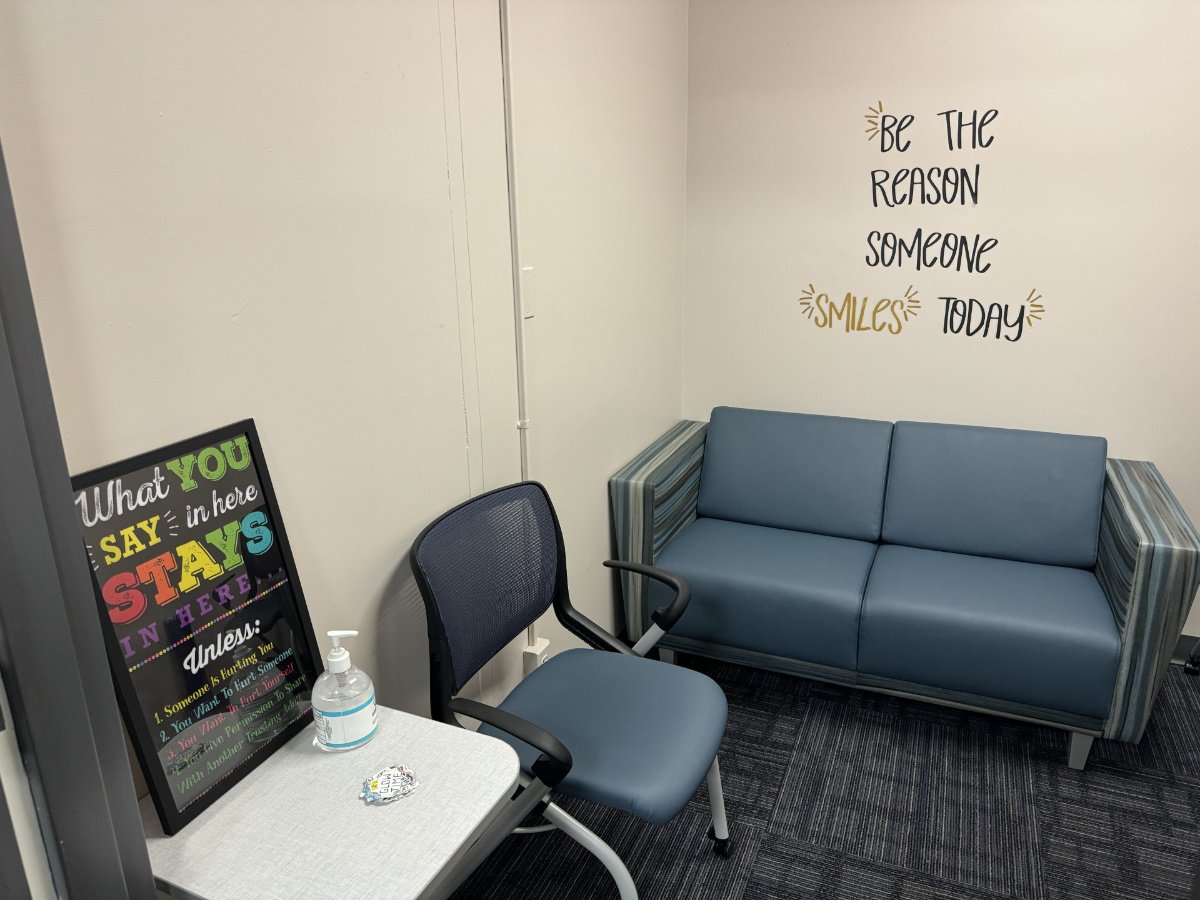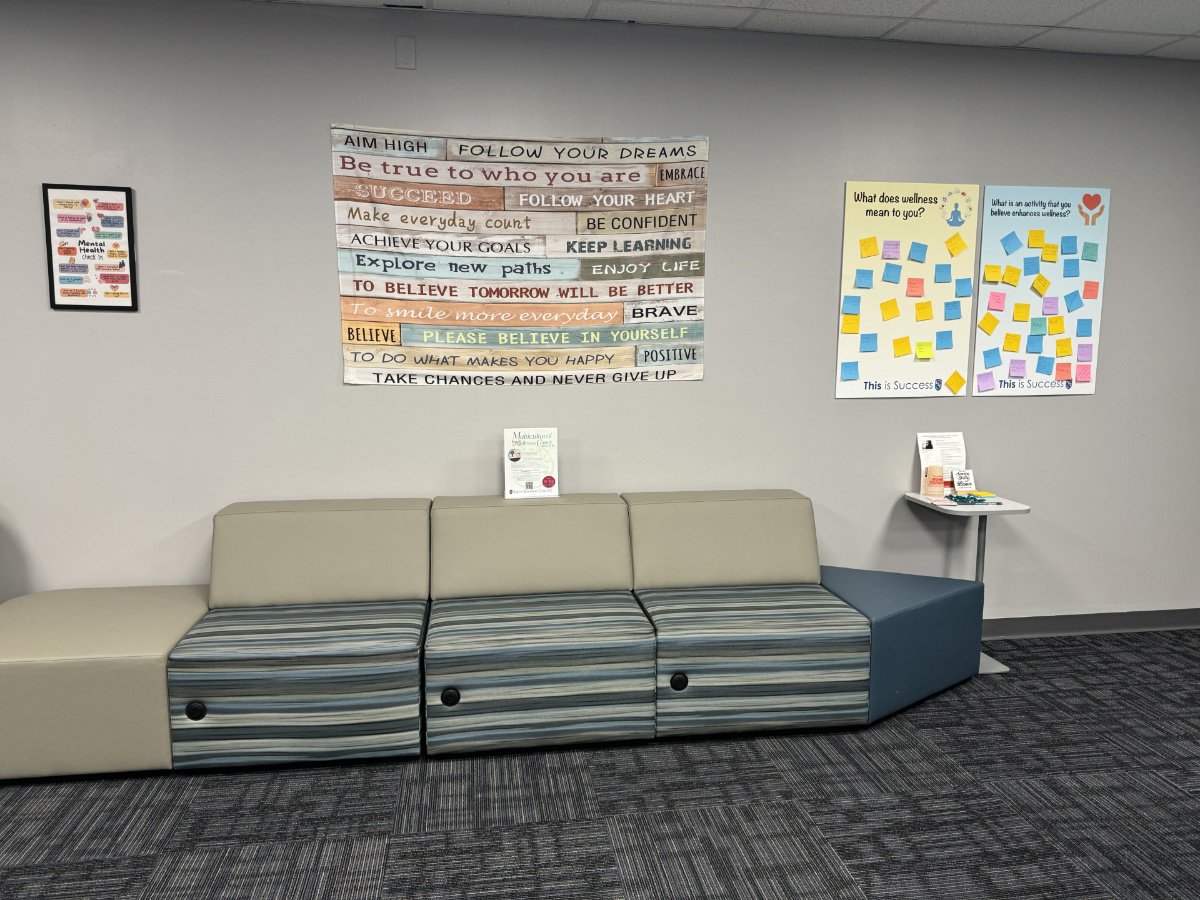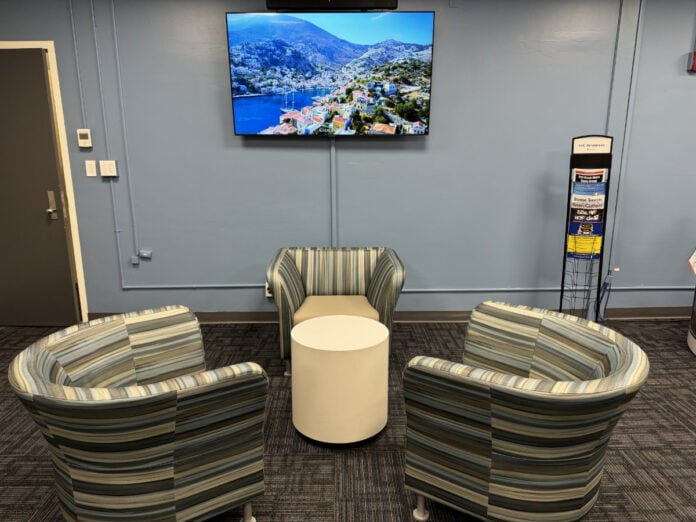By Michelle Ryan
SOUTH HOLLAND, Ill. (May 30, 2024) – As Mental Health Awareness Month in May winds down, June 3 marks the start of the summer semester at South Suburban College. The main campus, located at 15800 South State Street in South Holland, celebrated the grand opening of its Multicultural Wellness Center in February of this year.
The center is funded by an allocation through the MHEAC Act (Mental Health Early Action on Campus). The Act requires Illinois public colleges and universities to prioritize mental health. It was passed in 2019 and went into effect in July 2020, as the State realized the pandemic’s end was uncertain.
Along with increasing mental health awareness efforts on campus, the General Assembly also requires developing strategic mental health partnerships with agencies in the community, implementing an anonymous online mental health screening tool, creating a mental health peer-to-peer support program, and more.
According to the Healthy Minds Study for 2020-2021, which collected data from 373 college campuses nationwide, 60% of the college students surveyed met the criteria for at least one mental health problem.
SSC’s Multicultural Wellness Center

Alexandra Glumac, Director of the Multicultural Wellness Center, who is also a Licensed Clinical Professional Counselor and Certified Alcohol and Drug Counselor, said “The emotional needs of the student need to be addressed and the primary focus is to keep students in school. There are so many challenges involving housing, child care, transportation, and basic needs, such as help with paying a phone bill or car note. Resources are in place and students can come in to the wellness center or access online.”
The Multicultural Wellness Center, located on the second floor (Room 2348), focuses on six pillars of wellness: physical, intellectual, occupational, spiritual, social, and emotional. A holistic approach is implemented to promote a balanced state of well-being and enhance academic success. The center provides information, resources, mental health crisis intervention services, and educational workshops. Additionally, it offers a space for meditation and reflection.
Colleges were offered the allocation to do with what they saw fit to meet the needs of the students, Glumac said.
“Some schools may have invested in increased counselors at schools or outsourced to other platforms but South Suburban remodeled some space at the college for a walk-in center,” she said.
She described the center as “a comfy, homey place with uplifting sayings and positive messages on the wall. Students can come in to unwind, color, journal, have a place to pray, and even change the lighting in some of the space to relax or lay down.”
Supporting students
As the MHEAC Act requires establishing peer support groups, Glumac explained that the first people students usually talk to about concerns are their peers who would understand the scenario with a similar mindset, not parents or a professional. A recent seminar involved a speaker to educate students about “psychological resistance — to train their minds about resilient thinking.” Other seminars discussed domestic violence.
The Wellness Center welcomes all students during open hours, providing support without the need for scheduled appointments. Crisis counseling is available for sudden or unexpected occurrences.
In a recent national survey, 10.3% of college students reported that they seriously considered suicide in the past 12 months, according to the University of Illinois Urbana-Champaign.
South Suburban College also has a Student Assistance Program that allows students to connect with a licensed therapist for no charge, and may lead to additional resources.
Games, painting, and holistic health
A particularly stressful time in college is final exam week. Glumac said there was a soft opening this past November and early December during finals week. Activities to help ease that time included playing games, watching movies, chair massages, and an ice cream social. There was also a recent “Chips, Dip, Paint & Sip” where students were provided canvasses, paint, and tools to explore their creativity. Glumac was impressed with the artistry. It was so well received that the center is planning another on June 25.
Much more funding is available now with a focus on mental health since the pandemic, according to Glumac.
“At some point, funding will end. South Suburban College wants their Wellness Center to be sustainable afterward,” she said.
She said plans for a holistic health fair to focus on healing strategies other than traditional western medicine-oriented ways are under consideration.
Glumas would also like to add a “take a book, bring it back” library that focuses on self-help, in coordination with the college’s library.
Open to the community
The Wellness Center is not only open to students, but faculty, staff, and community members as well. Summer hours are from 8 a.m. – 5 p.m., Monday – Thursday. (The college is closed on Fridays from May 31 – August 2.) Fall and spring hours are 8 a.m. – 7 p.m. on Mondays, and 8 a.m. – 5 p.m. Tuesday – Friday.
For further information, call 708-596-2000 x5709, or email [email protected]. South Suburban College is located at 15800 South State Street in South Holland.


